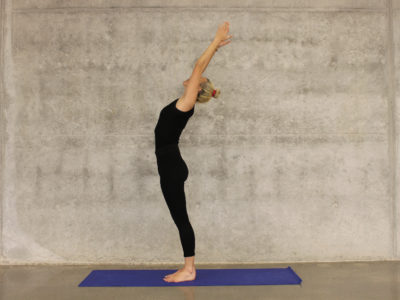Sleep when you’re dead
There are currently more than 9.7 million fitness members in the UK. However, one of the most noticeable fitness transformations is that of Cardiff-native Matthew Pritchard. The Welshman quickly became a cult symbol of debauchery and sin through his extreme stunts, prolific drug use and infamous party lifestyle as depicted in MTV show Dirty Sanchez – adopting the mantra ‘sleep when you’re dead’ along the way.
The Dirty Sanchez franchise eventually reached a somber end after three seasons, a spin-off series and a movie. However, Pritchard has since reinvented himself as a marathon runner, avid swimmer and fitness guru – vlogging his daily fitness regiment on YouTube. He has gained over 3,500 subscribers in the past few months, and shares his vegan health and fitness tips with his quickly growing fanbase.
With over £3 million being spent on improving Cardiff gyms, youth culture is on the move from cannabis to kale

Last December, Greenwich Leisure Limited gained control of eight local leisure centres previously operated by Cardiff council (Photo credit: GLL)
With one in seven people in the UK having a gym membership, young Cardiffians are taking to the treadmills to improve their health and fitness. This comes amidst a £3.4m investment by Cardiff’s leading leisure centre provider Greenwich Leisure Limited (GLL) to improve leisure centres across the capital.
Matt Plowman, marketing communications and social media manager of Cardiff Sports Nutrition, believes the cultural shift from shots to squats can be credited to the growing trend of health and fitness on social media. He said: “People feel they need to look like the celebrities they follow on social media, but these ‘role models’ are all sponsored by the big supplement brands and have the financial means to maintain a certain lifestyle.”
In an attempt to reach the high standards of fitness exhibited by celebrities, Matt claims to have seen a huge rise in the number of young people buying supplements to optimise their workout. This is in keeping with research from Mintel, which reports that 42 percent of British people aged between 16 and 24 have consumed sports nutrition products in the past three months.
“For most of the population good health is an all-or-nothing lifestyle choice.”
Richard Rees, a personal trainer based in Caerphilly, believes that social media are breaking down the barriers of going to the gym. At 36 years old, Richard has been training for more than twenty years, and oriented his lifestyle and career around health and fitness. “When I was younger I never saw a gym with a tv,” he begins. “We never even had carpets! It was old school. You went in, lifted weights, and left.
“These days young people are more inclined to train in gyms because they are so accommodating, and with wifi readily available they are much more linked to social media,” Richard said.
Most stressed city in the UK
Although some credit the influence of social media for the rise of fitness within young people, stress may also be a large factor for this lifestyle shift. A recent survey carried out by AXA found Cardiff to be the most stressed city in the UK, with 86 percent of locals admitting to feeling stressed at some point during the week, and 13 percent of people claiming to feel constantly stressed. The survey also found that one third of UK residents use exercise in order to cope with anxiety.
This fitness-forward trend has been praised by Dr Mark Winwood, director of psychological services at AXA. “It is encouraging to see a third of people exercising as a way to combat their stress, which is obviously a much healthier way of unwinding than smoking or drinking.
“Physical activity is proven to have a positive impact on mental health, even if it is just a walk around the block instead of a trip to the gym,” he said.
Although the new fitness-forward trend seems great at face value, Matt maintains that exercise can quickly become an obsession for young people. He said: “So many people these days work themselves into strict diet and training regimes, to the extent that they find themselves cut off from others within society.”

GLL are the second largest gym operators in the UK, overseeing 167 public and private clubs across the nation.
Finding the balance
Matt is confident that getting in shape does not mean that young people cannot enjoy the occasional night out on Queen Street. “Finding that balance is the hardest bit about health and fitness, and it’s really important to find that balance early,” he said.
However, it seems that the people of Cardiff are not quite able to maintain this balance. A spending map created by VoucherCodes discovered that Cardiffians spend an average of £86.80 every month (£1,041 a year) on fast food and takeaways, hailing the city as the junk-food capital of the UK. Anita Naik, consumer editor at VoucherCodes, said: “What the spending map shows is that we are a nation who likes to treat ourselves.”
John Byers, director of Cardiff Personal Training Studio, believes it is hard to find a compromise between fitness and excess: “We live in a binge society so for most of the population good health is an all-or-nothing lifestyle choice.” He continues: “Moderation has got to be the key to creating long term positive habits.”
As a nation we are hungry, stressed and obsessed. Wth GLL investing their money in health and fitness for the people of the capital, young Cardiffians have managed to adopt a more positive outlet for the anxieties of everyday life.
Sleep when you’re dead
There are currently more than 9.7 million fitness members in the UK. However, one of the most noticeable fitness transformations is that of Cardiff-native Matthew Pritchard. The Welshman quickly became a cult symbol of debauchery and sin through his extreme stunts, prolific drug use and infamous party lifestyle as depicted in MTV show Dirty Sanchez – adopting the mantra ‘sleep when you’re dead’ along the way.
The Dirty Sanchez franchise eventually reached a somber end after three seasons, a spin-off series and a movie. However, Pritchard has since reinvented himself as a marathon runner, avid swimmer and fitness guru – vlogging his daily fitness regiment on YouTube. He has gained over 3,500 subscribers in the past few months, and shares his vegan health and fitness tips with his quickly growing fanbase.





